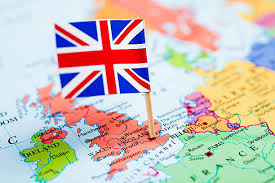England, Great Britain, and the United Kingdom: Unraveling the Differences
Introduction
The terms "England," "Great Britain," and "the United Kingdom" are often used interchangeably, but they actually refer to distinct geographical and political entities. Understanding the differences between these terms is not only essential for accurate communication but also for appreciating the rich history and diverse cultures that make up this part of the world. In this blog post, we'll delve into the distinctions between England, Great Britain, and the United Kingdom.
1. England
England is the easiest to define among the three terms. It is one of the four countries that make up the United Kingdom. Geographically, England is located on the island of Great Britain, sharing its borders with Scotland to the north and Wales to the west. London, the capital city of both England and the United Kingdom, is a major global financial and cultural hub.
England has a long and storied history, with traditions, literature, and institutions that have significantly influenced the world. Iconic landmarks like the Tower of London, Stonehenge, and the University of Oxford are found in this country. England also boasts a diverse landscape, from the rolling hills of the Cotswolds to the stunning Lake District.
2. Great Britain
Great Britain is a larger geographical entity than England. It consists of three countries: England, Scotland, and Wales, all of which are located on the island of Great Britain. The term "Great Britain" is primarily a geographical reference and does not encompass the political union that makes up the United Kingdom.
One key distinction is that Great Britain excludes Northern Ireland, which is part of the United Kingdom. When people refer to Great Britain, they are usually talking about the island itself and the three countries that reside on it, but not the political entity of the United Kingdom.
3. The United Kingdom (UK)
The United Kingdom, often abbreviated as the UK, is a sovereign country that consists of four constituent countries: England, Scotland, Wales, and Northern Ireland. Unlike Great Britain, which is purely a geographical term, the United Kingdom represents a political union formed in 1707 between England and Scotland (and later expanded to include Wales in 1536 and 1543). The union with Ireland took place in 1801, leading to the formation of the United Kingdom of Great Britain and Ireland. After the Irish Free State gained independence in 1922, Northern Ireland remained part of the UK, and it became the United Kingdom of Great Britain and Northern Ireland, the current official name.
The UK has a unified government and represents the interests of all its constituent countries on the international stage. It is important to note that while England is by far the largest and most populous of the four nations, each has its own distinct legal and education systems, and Scotland and Wales have their own devolved governments with varying degrees of legislative power.
Conclusion
In summary, England is a country located on the island of Great Britain, which also includes Scotland and Wales. Great Britain refers to the island itself and these three countries, while the United Kingdom encompasses all four constituent countries, including Northern Ireland. Understanding these differences is crucial for accurate discussions about the geographical and political entities that make up this fascinating part of the world. Each of these regions has its unique history, culture, and identity, contributing to the rich tapestry of the United Kingdom.





Comments
Post a Comment